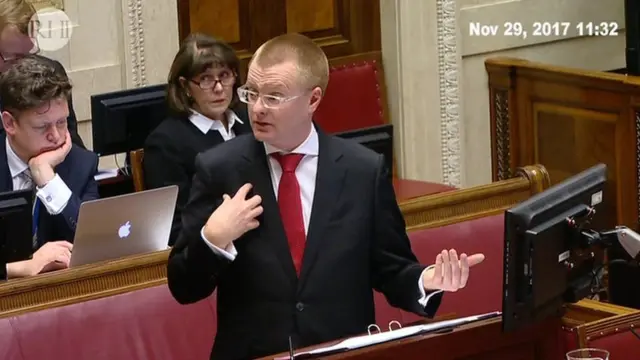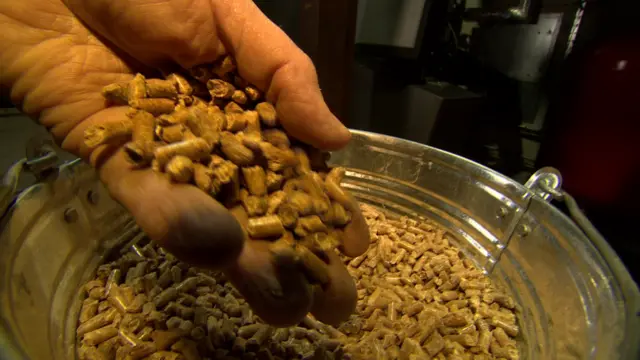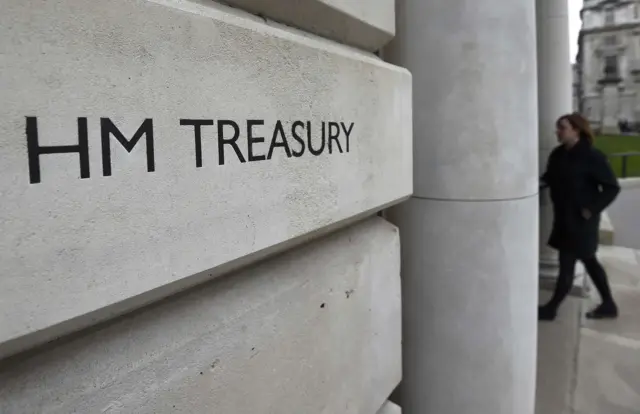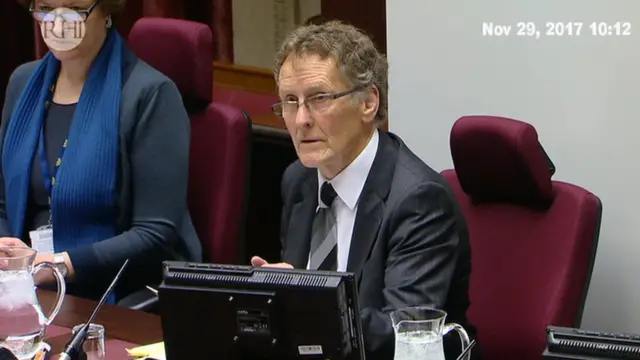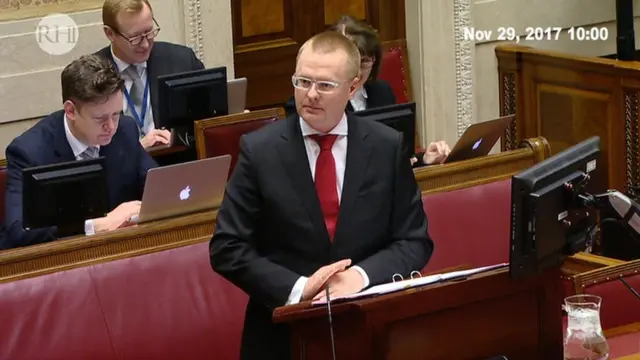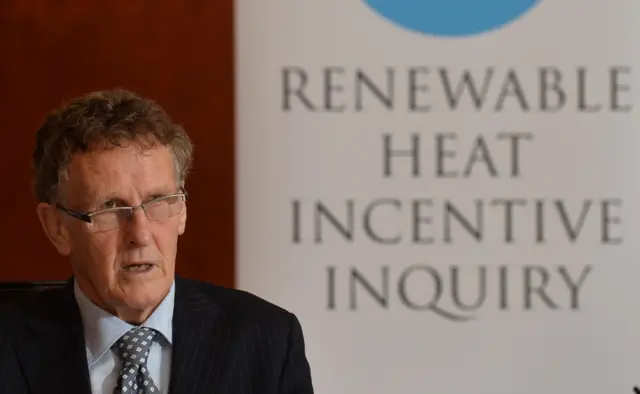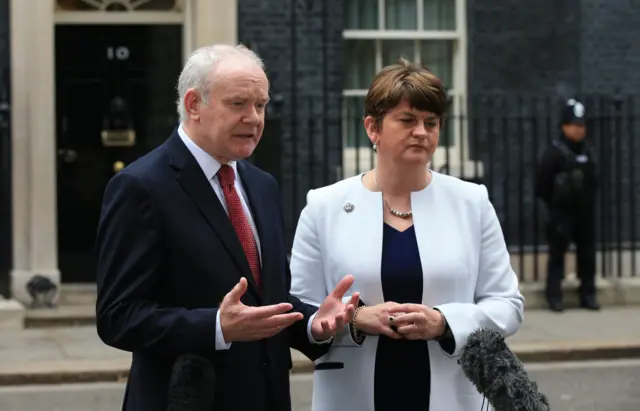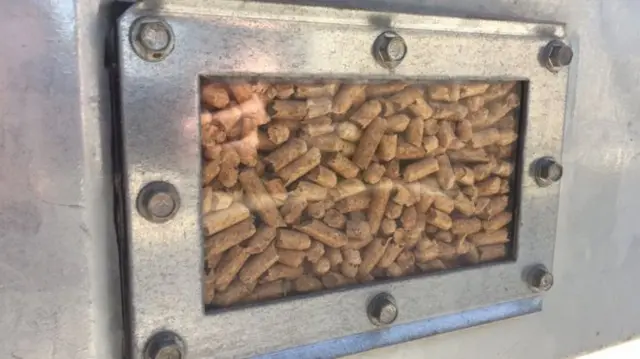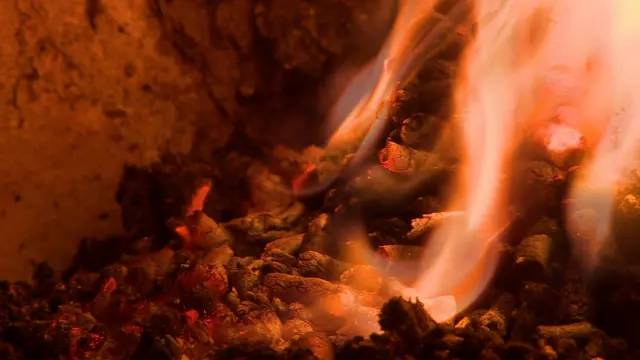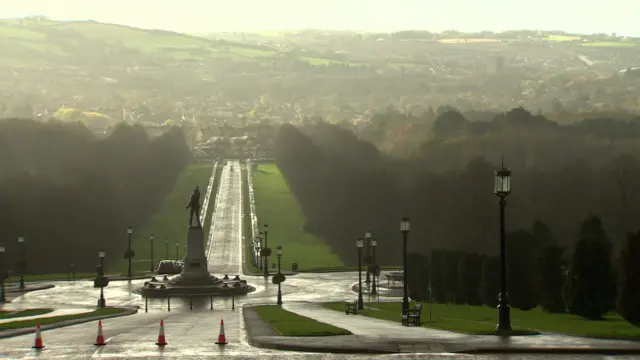'Is the funding policy appropriate?'published at 11:56 GMT 29 November 2017
Mr Aiken refers to two documents issued by the Treasury on 20 October 2010 regarding annually managed expenditure (AME) funding and the Barnett formula that appear to be contradictory.
One of them applies directly to the funding of the Northern Ireland RHI scheme, and the other is a briefing given to MPs on AME and Barnett funding.
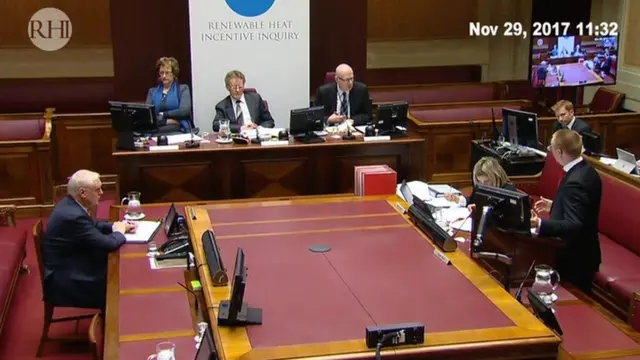 Image source, RHI Inquiry
Image source, RHI InquiryHe says that on the same day that the settlement letter is issued giving Northern Ireland an AME consequential Barnett budget for RHI, "the statement of funding policy that applies to Northern Ireland and the other devolved administrations says, according to the Treasury, this is not appropriate".
